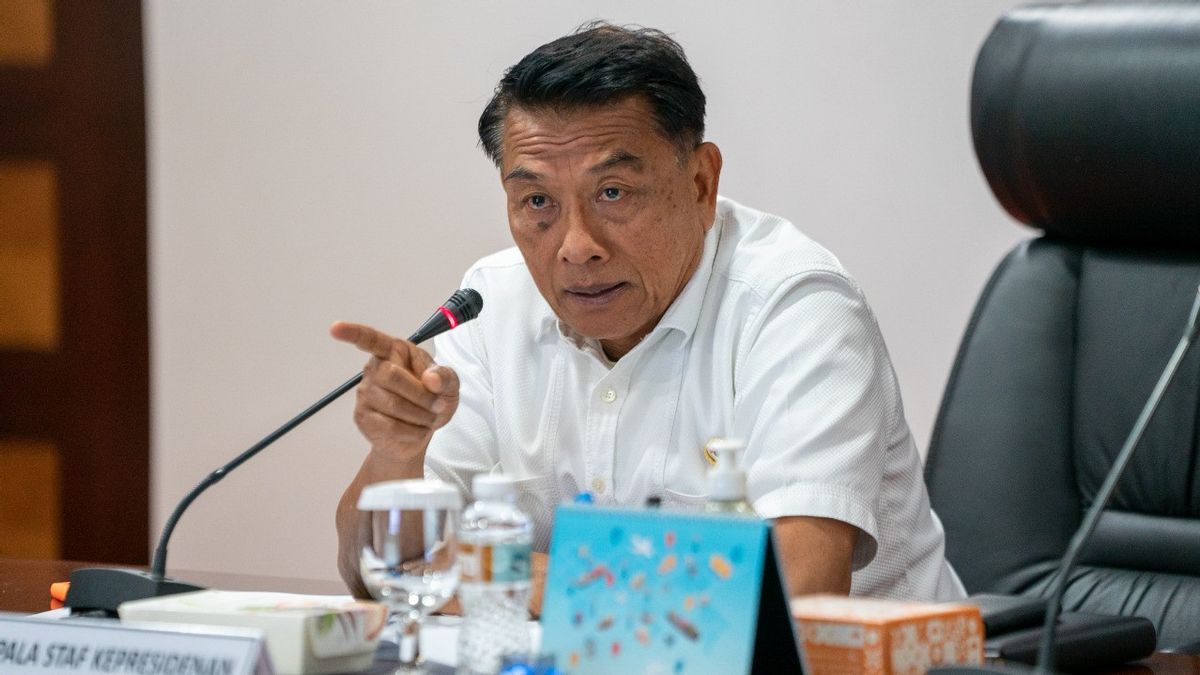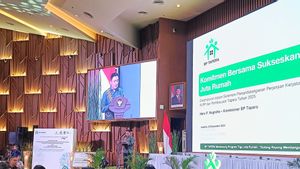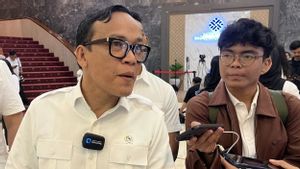Presidential Chief of Staff Dr. Moeldoko emphasized that the government continues to be committed to providing protection for Indonesian migrant workers (PMI), which is held by the country's foreign exchange heroes.
In order to increase PMI protection in accordance with the mandate of Law No. 18 of 2017, the Presidential Staff Office (KSP) is encouraging the strengthening of the rules for the placement of PMIs who will work abroad. Strengthening this rule is also expected to be able to improve the realization of the placement of PMIs procedurally.
This was discussed in the KSP coordination meeting with the Indonesian Migrant Workers Protection Agency (BP2MI), the Coordinating Ministry for Human Development and Culture of Indonesia (Kemenko PMK), the Ministry of Manpower, and the Ministry of Foreign Affairs at the Bina Graha Building, Jakarta, Thursday, January 5.
"KSP in particular appreciates BP2MI for its efforts to provide protection to PMI through the Regulation of the Indonesian Migrant Workers Protection Agency (Perban) 09/2020. President Jokowi also underlined the importance of protecting PMI from the ends of the hair to the ends of the nails. However, even though Perban's goal 09/2020 is good and implements the mandate of Law 18/2017, there needs to be a strengthening of Perban which guarantees protection to PMI," said Moeldoko.
Moeldoko also advised not to let government regulations become an obstacle, because later it will open up opportunities for PMIs to choose non-procedural channels.
The hope is that the existing rules will not burden the CPMI, but must run effectively. The regulation must also be implemented by thinking about various parties, both domestically and abroad. Therefore, KSP hopes that there will be a revision of Perban 09/2020 which in the end can provide certainty and convenience to CPMI," added the Presidential Chief of Staff.
Furthermore, KSP also proposed that the government ensure the ease of placement financing for PMIs. The ease of placement financing is expected to be able to increase the realization of the placement of procedural PMIs abroad, so that it becomes a preventive step so that non-procedural route PMIs do not occur more and more.
KSP also believes that there is a need to sort the placement costs and pre-placement of CPMI whose burden is not only borne by PMI candidates and employers, but also by the government and other non-binding financial sources.
Please note, the cost of placement so far is still borne by the employer. However, the cost component of pre-placement of CPMI consisting of job training costs, issuance of competency certificates, passport replacement, creation of SKCK, registration of social security and health checks, will not be borne by workers alone. The government at the central and regional levels is expected to share this cost burden.
"The components of the costs borne by the Government will be followed up with related Ministries / Agencies (K/L), for example related to social and health insurance, which will be communicated with BPJS Health, passport matters will be communicated with the Directorate General of Immigration, health checks with the Ministry of Health, and others. The point is, don't let us hinder placement, but also don't burden PMI", concluded Moeldoko.
The English, Chinese, Japanese, Arabic, and French versions are automatically generated by the AI. So there may still be inaccuracies in translating, please always see Indonesian as our main language. (system supported by DigitalSiber.id)








